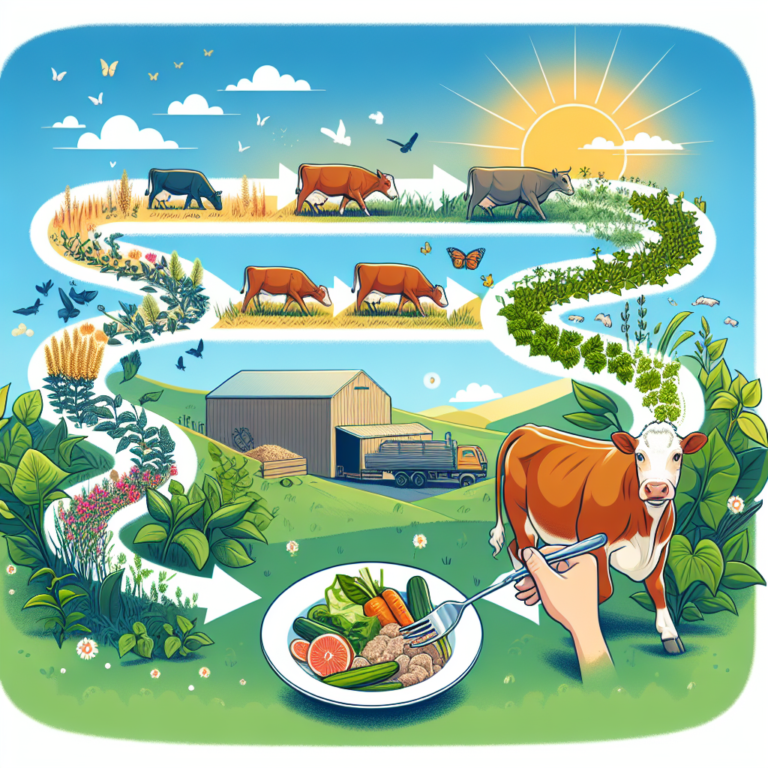In recent years, there has been a growing emphasis on sustainable practices in agriculture, including how livestock are fed. From pasture to plate, the journey of livestock involves various stages where sustainability can be promoted and practiced.
One of the key components of sustainable livestock feeding practices is the promotion of pasture-based feeding systems. Pasture-based systems allow animals to graze on natural grasses and plants, reducing the need for feedlot operations that rely heavily on concentrated feeds and grains. This not only promotes the natural behavior of the animals but also reduces the environmental impact of livestock production.
In pasture-based systems, animals are given access to a variety of plants and grasses, which not only provides a diverse diet but also helps improve soil health through natural fertilization. Additionally, animals that are raised on pasture tend to be healthier and have higher levels of omega-3 fatty acids compared to their grain-fed counterparts.
Another important aspect of sustainable livestock feeding practices is the use of locally sourced feed and forage. By sourcing feed from local farmers and producers, livestock farmers can reduce their carbon footprint and support their local economy. This also helps to create a more resilient food system that is less reliant on long-distance transportation of feed ingredients.
In addition to pasture-based systems and locally sourced feed, sustainable livestock feeding practices also include the use of alternative feed sources such as crop residues, food waste, and by-products from other industries. By utilizing these alternative feed sources, farmers can reduce the pressure on traditional feed crops like corn and soybeans, which are often linked to deforestation and habitat destruction.
Furthermore, sustainable livestock feeding practices also involve the responsible use of supplements such as minerals and vitamins to ensure the health and well-being of the animals. By carefully monitoring and managing the nutritional needs of the animals, farmers can reduce the risk of over-supplementation and potential environmental impacts.
Overall, from pasture to plate, sustainable livestock feeding practices play a crucial role in promoting sustainable agriculture and ensuring the health and well-being of both animals and consumers. By implementing pasture-based systems, sourcing feed locally, and utilizing alternative feed sources, farmers can reduce their environmental footprint and create a more resilient and sustainable food system. As consumers, we can also support sustainable livestock feeding practices by choosing products that are raised using these practices and advocating for more sustainable agricultural policies. Together, we can work towards a more sustainable and ethical food system for all.
